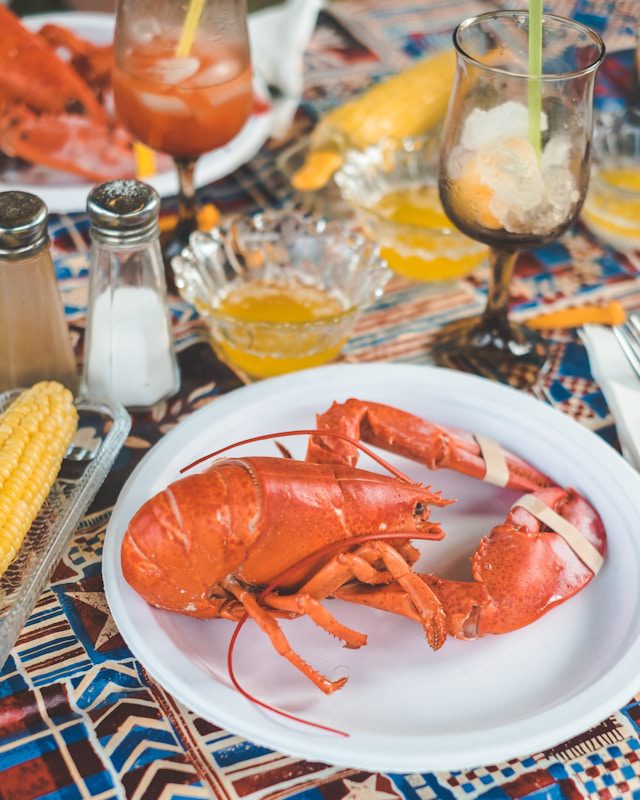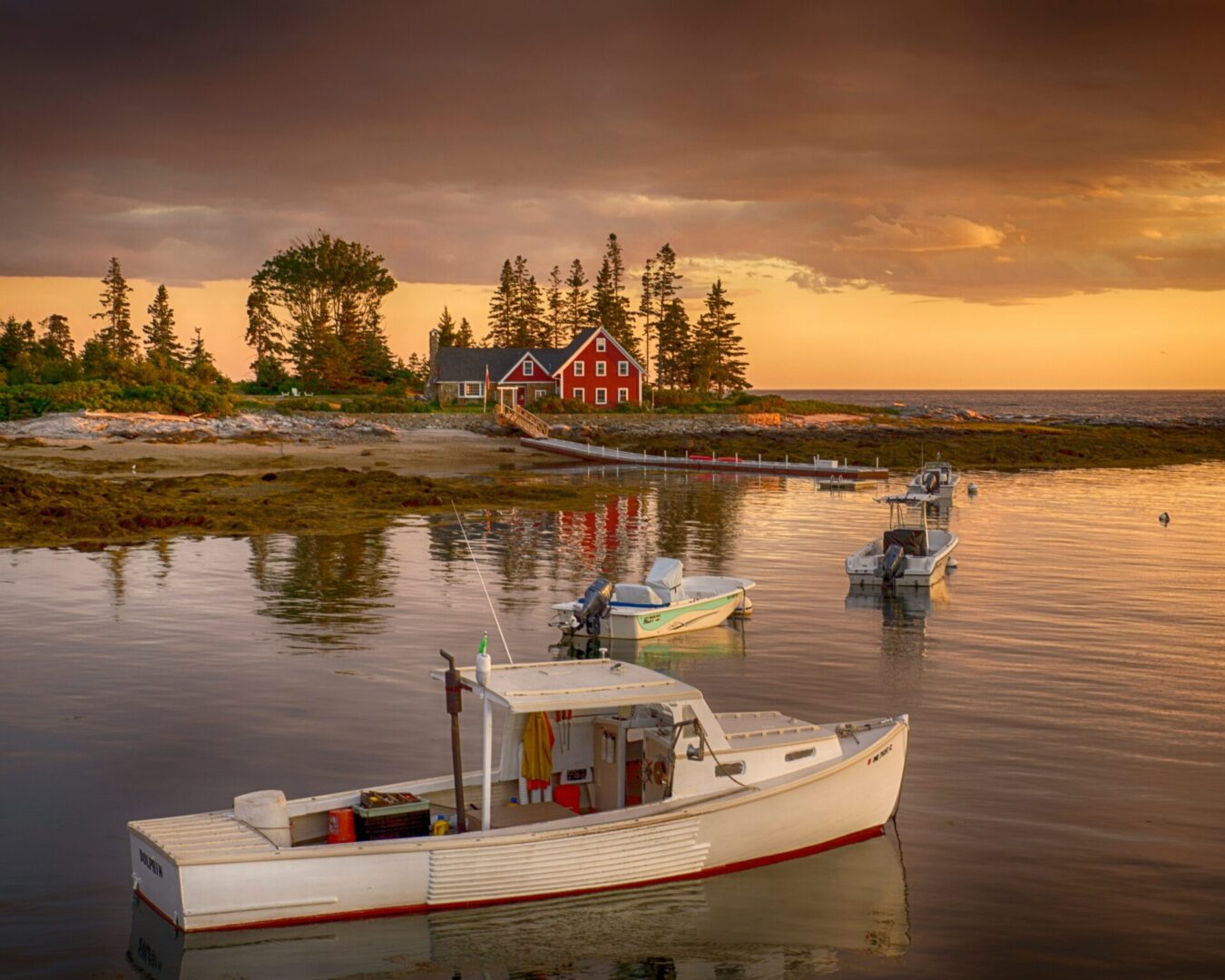Maine - The Way Life Should Be
If you are looking for property in Maine you'll find the state is rich in amazing cities, lakes, country scenes and oceanside villages.
REAL ESTATE IN MAINE
Buying real estate in Maine offers a unique opportunity to own property amidst the state's stunning natural landscapes, charming coastal towns, and quaint rural communities. Whether seeking a waterfront cottage, a historic farmhouse, or a mountain retreat, Maine's diverse real estate market caters to a wide range of preferences and lifestyles. Coastal properties along Maine's rocky shoreline provide breathtaking views and access to recreational activities such as boating, fishing, and beachcombing, while inland properties offer tranquility and privacy amidst lush forests and rolling hills. Maine's real estate market is known for its affordability compared to other coastal regions, making it an attractive option for both primary residences and vacation homes. With a strong sense of community, a thriving arts scene, and abundant outdoor recreational opportunities, buying real estate in Maine offers the chance to embrace a relaxed and fulfilling lifestyle in one of the most picturesque states in the country.
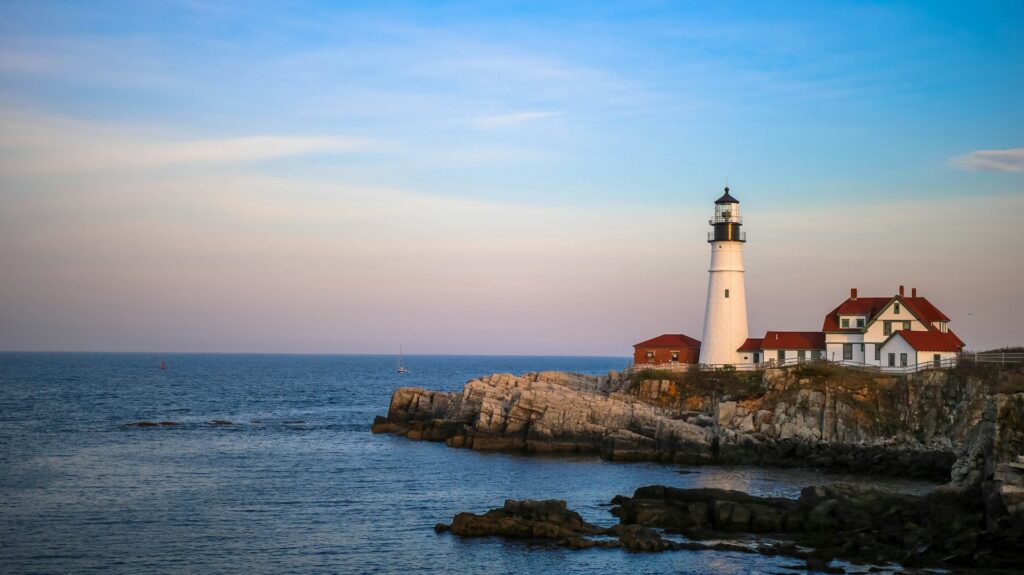
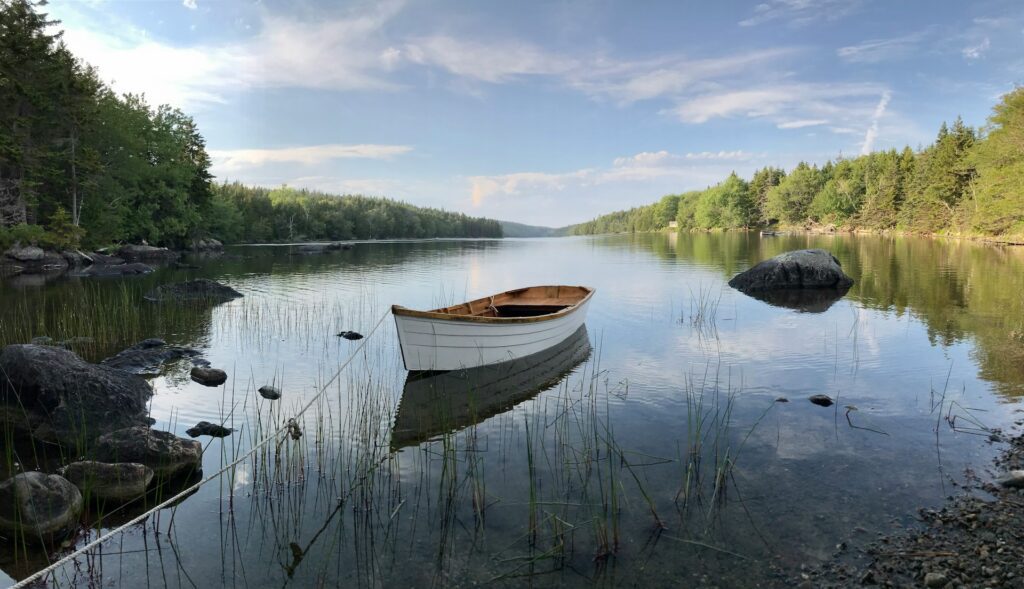
History of Maine
The first inhabitants of the land now called Maine probably arrived around 12,000 years ago. Over the course of this land’s history, Native American tribes such as the Maliseet, Passamaquoddy, Abenaki, and Penobscot lived on the land. Viking explorer Leif Ericsson and his crew possibly sailed to the area in the year 1000. About 600 years later British and French colonists established some of Maine’s first permanent European settlements. In 1652 southwestern Maine became part of the Massachusetts Bay Colony.
In defiance of Britain’s high taxes, Maine’s residents burned a shipment of British tea in 1774, one year after the Boston Tea Party. In response, British forces shelled and burned Falmouth, Maine. After the Revolutionary War started in 1775, Maine’s residents participated in the first naval battle of the war. When the American Revolution was over, Maine joined the United States as part of Massachusetts. But many Maine settlers wanted to have their own state. In 1820 Maine separated from Massachusetts, becoming the 23rd state in the union. This was done as part of the Missouri Compromise, a deal that admitted Missouri as a state as well.
Several Native American tribes still exist in Maine, including descendants of the original Passamaquoddy, Maliseet, and Penobscot tribes.
WHY’S IT CALLED THAT?
Some historians think Maine’s name came from the nautical term “mainland” or “the main,” which the colony’s founders may have used to differentiate Maine from the islands off its coast. Or it might have been named after an English village of the same name. Maine was given the nickname the Pine Tree State in honor of its many white pine trees, which are the biggest eastern conifers (or evergreen trees that bear cones) in the United States. The biggest state in New England, Maine is bordered by Canada in the north and east, the Atlantic Ocean in the south, and New Hampshire in the west. The land can be divided into three geographic areas.
The Coastal Lowlands start at the Atlantic coastline and stretch inland between 10 and 40 miles. This region has sandy beaches, salt marshes, bays, inlets, and thousands of coastal islands, the largest of which is Mount Desert Island. The islands started out as mountains, but the rising sea level during the last Ice Age put them underwater! A set of islands in northern Maine are now home to Acadia National Park.
The Eastern New England Uplands are northwest of the Coastal Lowlands, a region with fertile soil, lakes, streams, and the Longfellow Mountains. The White Mountains are in the northwest of the state and include Maine’s highest point, Mount Katahdin, as well as Baxter State Park.
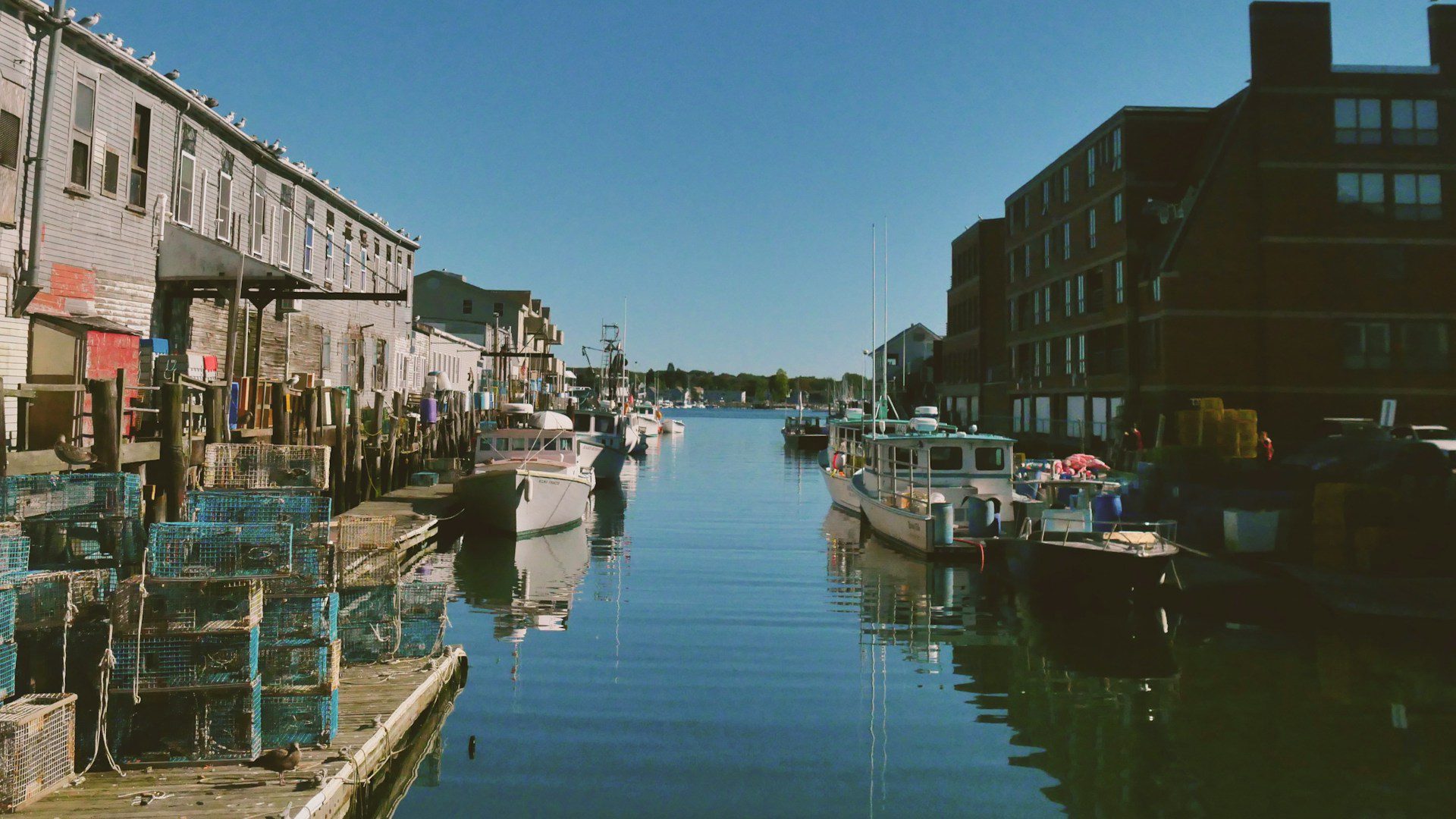
MAINE QUALITY OF LIFE
- Natural Beauty. Maine offers a high quality of life characterized by its pristine natural beauty, strong sense of community, and diverse recreational opportunities.
- Access to Outdoor Activities. Residents of Maine enjoy access to picturesque coastlines, dense forests, and majestic mountains, providing ample opportunities for outdoor activities such as hiking, skiing, fishing, and boating.
- Picturesque Charm. The state's small-town charm and tight-knit communities foster a sense of belonging and neighborly support.
- Low Crime Rate. With a relatively low crime rate and a focus on environmental conservation, Maine provides a safe and clean environment for families and individuals alike.
- Cultural Environment. Maine's rich cultural heritage, vibrant arts scene, and delicious seafood cuisine contribute to a fulfilling and enriching lifestyle.
Overall, Maine's quality of life is characterized by its natural beauty, strong communities, and abundant opportunities for recreation and relaxation.
THE MAINE ECONOMY
Maine's economy is diverse, resilient, and deeply rooted in its natural resources, traditional industries, and emerging sectors. Historically, industries such as agriculture, forestry, and fishing have played a significant role in Maine's economy, with the state known for its blueberries, potatoes, lumber, and seafood. Today, Maine's economy also benefits from a growing tourism sector, driven by the state's scenic coastlines, outdoor recreational opportunities, and vibrant cultural attractions. Additionally, Maine's manufacturing sector encompasses industries such as paper production, shipbuilding, aerospace, and biotechnology, contributing to the state's economic vitality. With a strong focus on innovation and entrepreneurship, Maine is also seeing growth in industries such as renewable energy, information technology, and healthcare services. However, Maine faces challenges such as an aging population, rural poverty, and workforce development, which the state is actively addressing through targeted initiatives and investments aimed at fostering economic growth, job creation, and prosperity for all residents.
The 100 Largest Companies in Maine https://www.zippia.com/advice/largest-companies-in-maine/
HEALTHCARE IN MAINE
Healthcare in Maine is anchored by a network of hospitals, clinics, and healthcare providers dedicated to serving the diverse needs of residents across the state. Maine is home to numerous community health centers and rural clinics that ensure access to healthcare for underserved populations. The state's healthcare providers are known for their commitment to patient-centered care, innovation, and collaboration, making healthcare in Maine a cornerstone of the well-being and vitality of its residents. Maine's healthcare system prioritizes accessibility and quality, with a focus on providing comprehensive medical services to both urban and rural communities. Major healthcare facilities include:
- Maine Medical Center in Portland https://www.mainehealth.org/maine-medical-center
- Eastern Maine Medical Center in Bangor https://northernlighthealth.org/Our-System/Eastern-Maine-Medical-Center/About-Us
- Central Maine Medical Center in Lewiston offer a wide range of specialized care, including primary care, emergency services, surgical procedures, and advanced treatments. https://www.cmhc.org/cmmc/
RECREATION & ENTERTAINMENT
Maine offers a plethora of recreational opportunities, ranging from its rugged coastline to its expansive forests and majestic mountains.
Acadia National Park, located on Mount Desert Island, is one of Maine's premier recreational destinations, offering stunning coastal landscapes, hiking trails, and opportunities for birdwatching, biking, and kayaking. https://www.nps.gov/acad/index.htm
Baxter State Park, home to Mount Katahdin, the tallest peak in Maine, attracts outdoor enthusiasts with its challenging hiking trails, wilderness camping, and panoramic views. https://baxterstatepark.org/
The Allagash Wilderness Waterway provides a unique opportunity for canoeing and kayaking through pristine wilderness areas, while the Rangeley Lakes Region offers fishing, boating, and scenic drives amidst serene lakes and mountains. https://visitaroostook.com/story/maine-allagash-wilderness-waterway
For those seeking coastal adventures, the towns of Bar Harbor, Camden, and Boothbay Harbor offer sailing, whale watching, and scenic cruises along Maine's picturesque coastline. Whether exploring the great outdoors or enjoying coastal delights, Maine's recreational places offer something for everyone to enjoy amidst its natural splendor. https://acadiamagic.com/bar-harbor/
FOOD
Maine's culinary scene is as diverse as its landscapes, offering a delectable array of dishes that celebrate the state's rich cultural heritage and bountiful natural resources. With a coastline stretching over 3,000 miles, Maine is renowned for its fresh seafood, including lobster, clams, oysters, and mussels, which are often enjoyed in iconic dishes like lobster rolls, clam chowder, and seafood boils. Inland, Maine's fertile farmlands yield an abundance of produce, meats, and dairy products that are celebrated in farm-to-table restaurants and farmers' markets throughout the state. Maine is also famous for its wild blueberries, harvested from the state's extensive blueberry barrens and used in a variety of sweet and savory dishes. Additionally, Maine's culinary scene reflects its cultural heritage, with influences from Indigenous peoples, early European settlers, and immigrants from around the world contributing to a vibrant and diverse food landscape. Whether savoring a freshly caught lobster by the seaside, indulging in a hearty maple-infused breakfast at a cozy diner, or sampling artisanal cheeses and craft beers at a local market, food lovers in Maine are sure to find something to delight their taste buds.
Here is a very good list of some of the most popular restaurants in Maine. https://www.eater.com/maps/best-maine-restaurants
